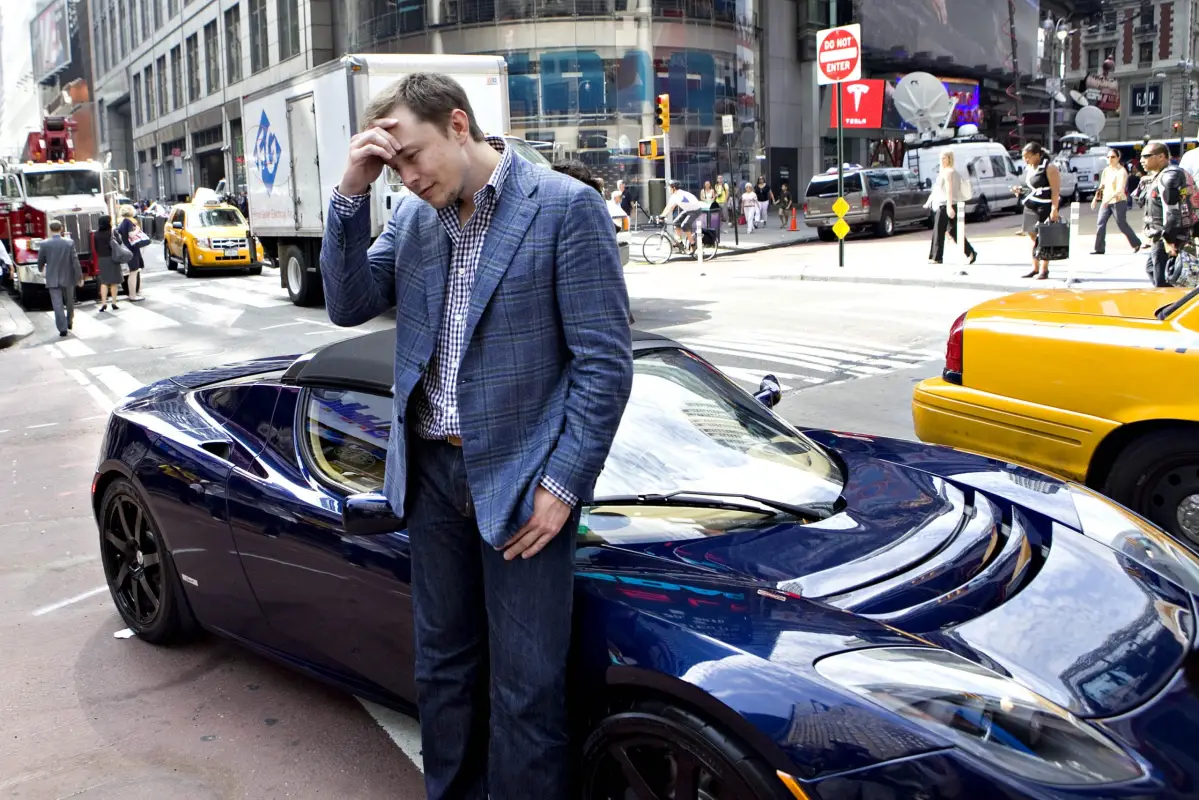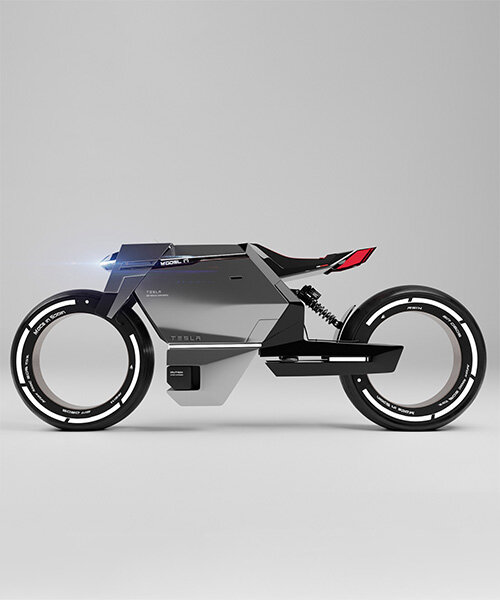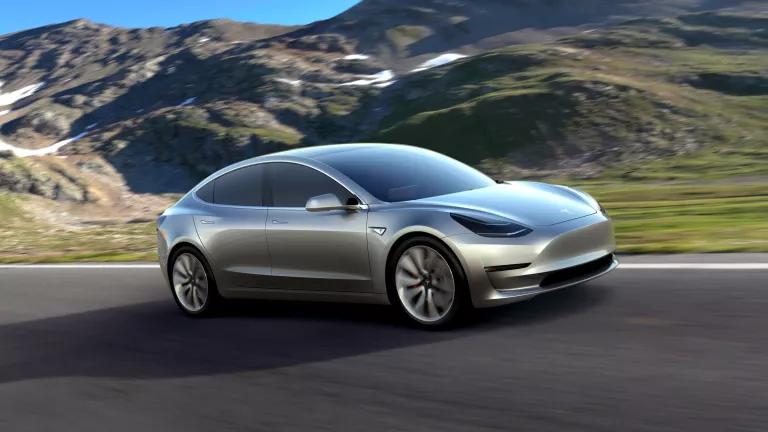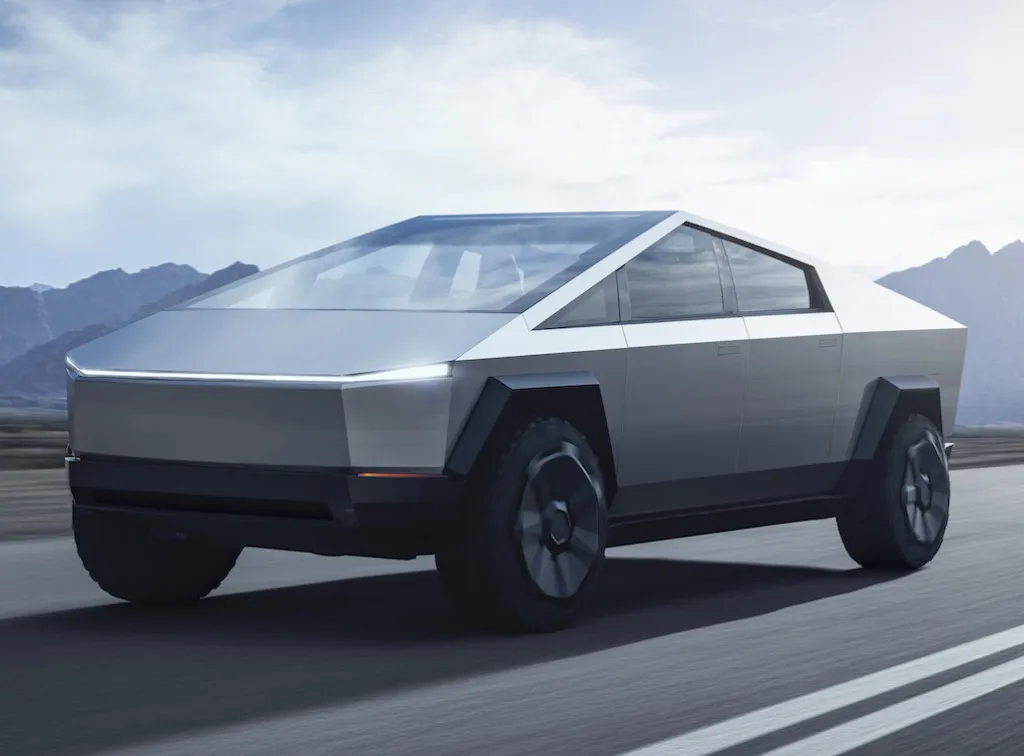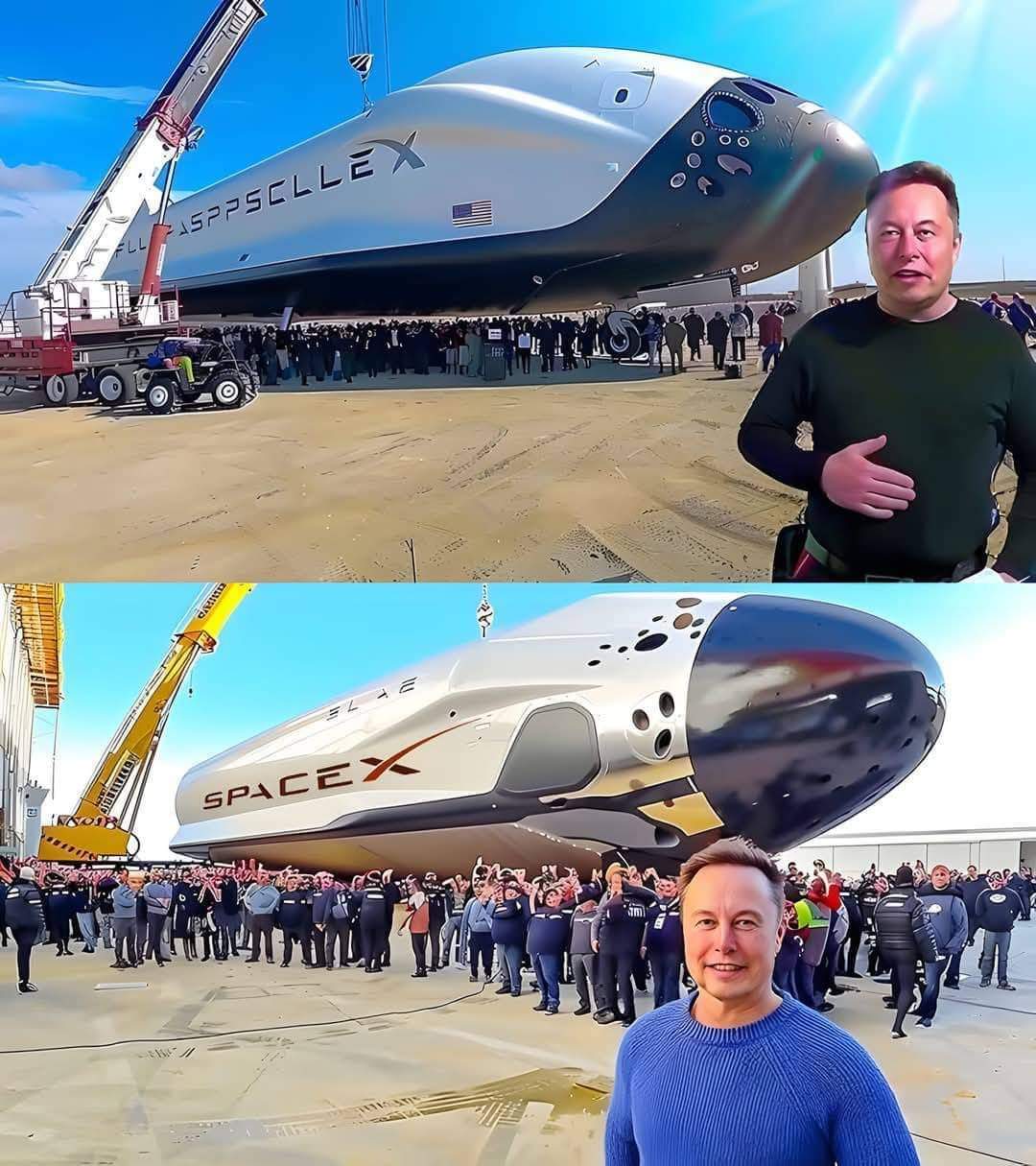There was a time when an electric Tesla pickup, something designed to go head-to-head against America’s most popular products, the Ford F-150 and Chevrolet Silverado, seemed just the thing to take Tesla truly mainstream.
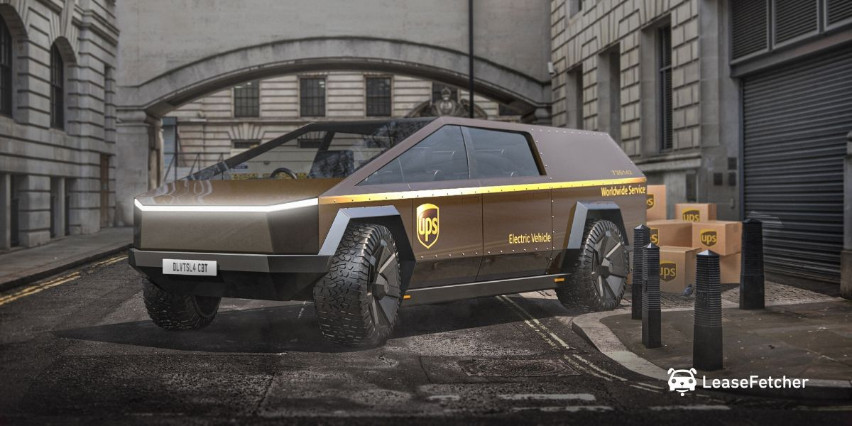
Then, in 2019, Elon Musk unveiled the Tesla Cybertruck, a bare metal box on wheels. It’s the furthest thing from mainstream. This truck has attracted ardent fans and even more ardent critics. But it has good towing and hauling capabilities even though it sacrifices some usability to its literally edgy design. For some customers, the sacrifice is undoubtably worth it.
But it may be more of a question about whether Ford and GM really need to worry.
If it’s a contest for eyeballs, they do. Even when I parked a rented Tesla Cybertruck next to a hot-pink McLaren supercar in a shopping center parking lot in California, the people in the McLaren couldn’t stop talking about the Cybertruck. Everywhere I went, the huge, shiny silver truck was a crowd magnet, drawing young people who’d been waiting to see one in real life and others, usually older, who had no idea what this thing even was.

The Tesla Cybertruck looks like nothing else on the road. And its size – it’s not quite as long as a Ford F-150 but somehow looks even bigger – is even more eye-catching. Of course, once the Cybertruck has been on the market a while, its draw will subside.
There’s a lot to like about the Cybertruck, but it also embodies a disturbing level of individual arrogance in hard, unforgiving steel. Concerns for the safety of others on the road and even the practical needs of its own users appear to have been placed second to a design and engineering directive spearheaded by Tesla chief executive Elon Musk. As Walter Isaacson’s recent biography of Musk makes clear, it was Musk’s fixation on this structure, created from the same steel SpaceX uses for rockets, that resulted in the rectilinear mass of naked metal that I was driving through the southern California hills.
A sports-truck
It was the most enjoyable electric truck I’ve driven yet. I’ve driven nearly all the other electric trucks currently on the market such as Ford’s and Rivian’s and I don’t expect any will surpass the Cybertruck in its sports-car like performance. Ordinarily, not a priority in a pickup. It’s got powerful acceleration and steering that feels quick, responsive and nimble. With its punchy acceleration, quick steering and custom-designed Goodyear truck tires, it reminded me a bit of driving the Lamborghini Huracán Sterrato, a high-performance sports car fitted with off-road tires and raised suspension. But the Cybertruck is, of course, bigger and more than twice as heavy.
Even a mildly firm press on the accelerator left everyone else quickly behind. With its drive-by-wire steering system, a slight turn of its small, rectangular steering wheel yielded tight turns at lower speeds but, at higher speeds, it wasn’t hard to keep the truck in its lane. Four-wheel steering allows it to turn around in a smaller area than one might expect.

Tesla did not provide CNN with a Cybertruck to test. Instead, we rented one for over $1,000 for the day through Turo, the peer-to-peer vehicle rental service. (Turo doesn’t set the rates, vehicle owners do, and Cybertruck rates have come down somewhat since then.) My Turo host walked me through the Cybertruck’s various very weird – by non-Tesla standards – controls.
The turn signals are controlled using steering wheel buttons rather than a stalk. (Again, this is similar to a Lamborghini or Ferrari.) To put the truck in drive or reverse, I swiped up and down on a truck icon on the center screen. (In case the screen ever goes blank, there is a row of gear selector buttons on the ceiling just above the windshield.) And I had to dig a bit on the touchscreen to find the control for the Cybertruck’s one gigantic windshield wiper. Once I’d driven the truck an hour or so, though, everything seemed logical.
Um, what’s with the rearview mirror?
It does have a windshield-mounted rear-view mirror but, troublingly, it’s entirely useless most of the time. With the bed cover closed, there is nothing to see out the back window.
Many modern SUVs have rearview mirrors that double as a video screen showing a view from a camera mounted in the back. Tesla could have used a similar system but, no. In the Cybertruck the rear video view is displayed in a small rectangle in the truck’s center screen. It’s there all the time while you drive.
This may seem like a minor detail but it says a lot about how Tesla thinks about vehicle controls. The only reason to have the rearview video display inside the rearview mirror is because that’s where drivers are used to looking. Similarly, the only reason to have a turn signal stalk is that’s what people are used to. For better or worse, Tesla does not care what you’re used to.
There are indications this attitude contributes to higher crash rates but, if Tesla were inventing a vehicle from scratch the strange choices would be totally sensible.

Then there’s the Cybertruck’s crazy shape. Other companies have been making pickup trucks for well more than a century and there are reasons they’re not usually shaped like wedges. In this case, the Cybertruck is hindered by an apparent, needless desire to be different.
In the Cybertruck, if you load up the cargo bed then decide you want to reach something in the front, something close to the back window, you’ll need to start unpacking. There’s no reaching over the side of the bed to get at it. The side wall is just too high.
Unlike other large trucks, the Cybertruck also gives you nowhere to put your foot to help you reach over the cargo bed’s side other than the back tire, which could be slick with mud and dirt. There’s not even much room to stand on the back bumper.
The” frunk,” or front trunk, is also a fairly useless afterthought compared to the one on in the Ford F-150 Lightning. Ford’s is just bigger, to start with, and it has loads of power outlets making it a genuinely functional workspace. The Cybertruck’s is handy as, maybe, a place to sit. There is a fair-sized storage bin, though.
For now, at least, the Cybertruck isn’t in the same price range as the Lightning, either. The Foundation Series truck I drove cost over $100,000. It will be next year before Tesla has said it will start producing trucks costing around $60,000.
Most concerning, though, is the manufacturing quality. The interior is fairly nice, if spartan, but that’s the easy part, especially since Tesla does away with most switches. The hard part is making a body from stainless steel, especially one with mostly straight edges that don’t hide misalignments.
In most cars and trucks, body panel alignments are a purely cosmetic concern. It doesn’t look good when there are big, uneven gaps between different sections of the body. But most vehicles aren’t made from thick, hard-edged stainless steel. At the front corners of our Cybertruck there were gaps big enough to see daylight through and hard edges stuck out from the body.

I worried if this truck hit a pedestrian or if someone slipped while climbing over the bed side that the unyielding metal could cause real harm. It’s not actually knife-edged, of course, but, hitting soft flesh with enough force, it seems like it could rip through skin. I emailed Tesla to ask if the automaker had any concerns about this, but I haven’t received a response. Tesla has not responded to CNN inquiries in years.
This is not a truck that customers will buy in big numbers, and not just because Tesla isn’t making them in big numbers, yet. It’s fun and it’s interesting but, for those who just want to get the job done, there’s not much reason to buy this instead of something more normal and functional. It doesn’t seem like it will do anything – or at least anything that matters – much better than a Ford F-150 Lightning or a Chevrolet Silverado EV and it will definitely be worse in some important ways.
If you want to draw a crowd, though, this is your ride. At least while the novelty lasts.
